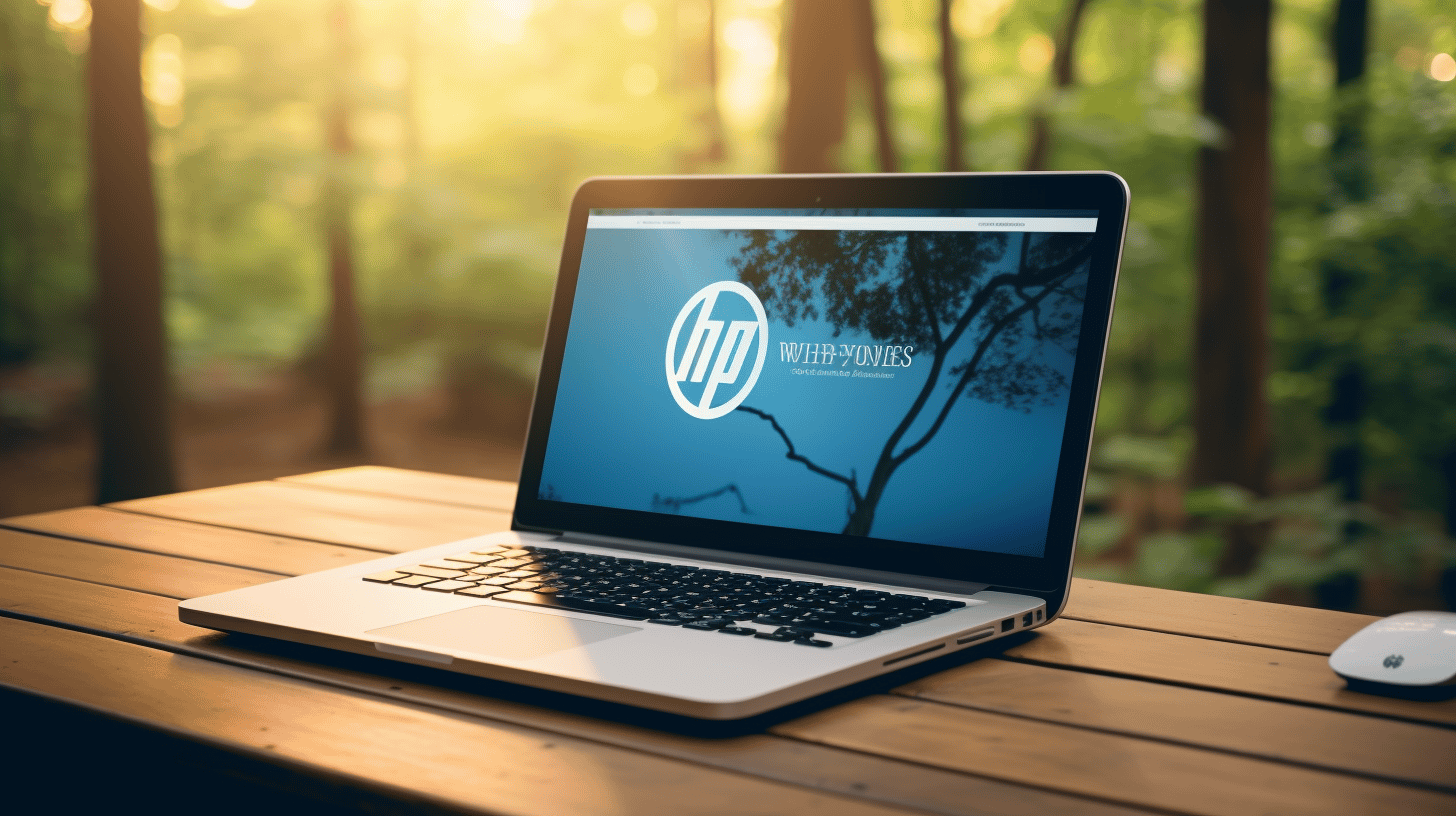在網站創建和維護的廣闊世界中,安全性應該始終是您的首要考慮因素。隨著網路威脅和惡意攻擊的日益普遍,採取必要的措施來保護您的網站並保護自己和您的訪客至關重要。
無論您是小型企業主、部落客還是電子商務企業家,確保網站的安全都是至關重要的。在本綜合指南中,我們將深入探討建立安全 WordPress 網站的來龍去脈,涵蓋從最佳實踐到頂級安全外掛程式的所有內容。所以係好安全帶,因為我們即將踏上加強您的網路影響力並阻止網路犯罪分子的旅程。 🚀
但首先,讓我們花點時間來了解為什麼網站安全如此重要以及忽視網站安全可能造成的後果。畢竟,知識就是力量,意識到風險將激勵您採取行動並保護您的數位資產。讓我們開始吧!
了解網站安全的重要性
在當今數位時代,網站安全至關重要。這不僅是為了保護您自己的數據,而且還要確保您的網站訪客的安全和信任。隨著網路威脅變得越來越複雜,優先考慮網站安全並採取必要措施來保障您的線上狀態至關重要。讓我們深入探討為什麼網站安全如此重要以及忽視網站安全會造成什麼後果。
為什麼網站安全很重要?
對於網站安全來說,預防總是比治療更好。以下是網站安全應成為首要任務的一些主要原因:
- 防止資料外洩: 網站通常儲存敏感的客戶訊息,例如姓名、地址、電子郵件地址和信用卡詳細資訊。安全漏洞可能導致這些寶貴的資訊落入壞人之手,被濫用或在暗網上出售。實施強有力的安全措施有助於保護客戶的資料並維護您的聲譽。
- 維護客戶信任: 安全漏洞會嚴重損害客戶對您品牌的信任和信心。當客戶感到他們的資料受到威脅時,他們不太可能造訪您的網站、進行購買或分享個人資訊。透過優先考慮網站安全,您可以表明您致力於保護客戶利益,並可以建立基於信任的長期關係。
- 防止網站停機: 網路攻擊可能會破壞您的網站,導致長時間的停機。這會對您的業務產生重大影響,導致收入損失和負面的用戶體驗。透過實施安全措施,您可以主動防禦攻擊並保持穩定、不間斷的線上狀態。
- SEO的好處: Google 和其他搜尋引擎將網站安全性作為排名優先考慮的因素。擁有 SSL 憑證和強大安全協議的網站更有可能在搜尋引擎結果中獲得更高的排名。透過投資網站安全,您不僅可以保護您的網站免受潛在威脅,還可以提高您的知名度和自然流量。
忽視網站安全的後果
忽視網站安全可能會對您的企業和客戶造成嚴重後果。以下是忽視網站安全的一些潛在後果:
- 資料外洩和客戶資訊外洩: 如果沒有適當的安全措施,您的網站很容易成為駭客和網路犯罪分子的目標。成功的攻擊可能造成客戶資料被盜,從而造成財務損失、法律後果以及品牌聲譽受損。
- 惡意軟體感染和受損的使用者裝置: 忽視網站安全性會為惡意軟體感染打開大門。注入到您網站的惡意程式碼可能會傳播到訪客的裝置中,從而損害他們的系統或竊取敏感資訊。
- 財務影響: 從安全漏洞中恢復可能是一個昂貴且耗時的過程。您可能需要投資法醫調查、法律支援、資料復原和實施更強大的安全措施。此外,失去客戶信任和潛在收入可能會對您的業務產生長期的財務影響。
- 喪失商業機會: 受到入侵的網站可能會導致錯失商機。潛在客戶可能會猶豫是否造訪您的網站而選擇您的競爭對手。此外,合作夥伴和附屬公司可能不願意與有安全漏洞歷史的網站合作。
透過了解網站安全的重要性以及忽視網站安全的潛在後果,您可以採取主動措施保護您的網站並確保客戶資料的安全。請記住,投資網站安全不僅僅是一項開支;這是經營成功且值得信賴的線上業務的關鍵方面。
WordPress 的安全挑戰
WordPress 無疑是世界上最受歡迎的內容管理系統 (CMS) 之一,為數百萬個網站提供支援。其用戶友好的介面和廣泛的插件生態系統使其成為個人和企業的理想選擇。然而,這種廣泛的流行也使 WordPress 成為駭客和網路犯罪分子的誘人目標。
常見的 WordPress 安全漏洞
與任何軟體一樣,WordPress 也無法避免漏洞。以下是 WordPress 網站可能面臨的一些最常見的安全漏洞:
- 過時的軟體: 如果未能將 WordPress 核心安裝、主題和外掛程式更新至最新版本,則您的網站可能會容易受到已知的安全漏洞的攻擊。定期更新對於修補這些漏洞和加強網站的安全性至關重要。
- 弱密碼: 弱密碼對攻擊者來說就是金礦。使用容易猜測的密碼或在多個網站上重複使用密碼會增加未經授權存取您的 WordPress 管理面板的風險。
- 不安全的外掛和主題: 雖然外掛程式和主題擴展了 WordPress 網站的功能,但它們也可能帶來安全風險。並非所有外掛程式和主題開發人員都將安全性放在首位,這可能會使您的網站暴露於各種漏洞。
- 使用者權限不足: 授予過多的使用者權限或使未使用的使用者帳戶處於活動狀態會增加未經授權存取您的網站的可能性。將使用者權限限制在必要的範圍內對於維護安全的 WordPress 網站至關重要。
- 備份和復原不足: 如果沒有可靠的備份和復原策略,一旦發生安全漏洞或其他不可預見的事件,就會導致永久性資料遺失。定期備份對於快速還原您的網站到安全狀態至關重要。
WordPress 安全性不足的潛在風險
如果無法解決這些安全漏洞,可能會對您的網站和業務造成嚴重後果。以下是與 WordPress 安全性不足相關的一些風險:
- 網站污損: 駭客可能會破壞您的網站,用惡意或不適當的材料替換您的內容,造成聲譽損害和信譽喪失。
- 資料外洩: 如果您的網站收集用戶的敏感信息,例如個人數據或付款詳細信息,則安全漏洞可能會導致這些數據的洩露和潛在濫用。
- SEO黑名單: 如果您的網站感染了惡意軟體或成為殭屍網路的一部分,搜尋引擎可能會將其列入黑名單,從而對您網站的可見度和自然流量產生負面影響。
- 分散式阻斷服務 (DDoS) 攻擊: 網路犯罪分子可能會利用您受感染的網站對其他目標發動 DDoS 攻擊,這可能會使他們的系統不堪重負並導致停機。
為了保護您的 WordPress 網站免受這些風險,優先考慮安全性並實施最佳實踐至關重要。定期更新您的軟體,使用強大而獨特的密碼,仔細選擇可信賴的外掛程式和主題,管理使用者權限,並建立強大的備份和復原策略。
請記住,確保 WordPress 網站的安全是一項持續的努力。保持警惕,跟上最新的安全實踐,並定期監控任何安全問題。透過這樣做,您可以最大限度地減少漏洞,並充分發揮 WordPress 的線上潛力。
有關 WordPress 安全漏洞的更多信息,您可以參考此 來源.
WordPress 安全性的最佳實踐
🔒 保持你的 WordPress 更新
確保 WordPress 網站安全的最重要步驟之一是保持其更新。定期更新提供必要的錯誤修復、安全性修補程式和功能增強,可以保護您的網站免受潛在漏洞的侵害。
透過更新您的 WordPress 安裝、主題和插件,您可以受益於最新的安全措施並確保您的網站能夠抵禦新出現的威脅。以下是保持 WordPress 更新至關重要的幾個主要原因:
- 安全補丁:WordPress 核心、主題和外掛程式中的漏洞經常被開發人員發現。發布更新後,這些漏洞會被修補,降低潛在駭客帶來的風險。
- 相容性:更新您的 WordPress 安裝和外掛有助於保持與最新功能和技術的兼容性。透過確保相容性,您可以減少相容性相關漏洞被利用的機會。
- 提高性能:更新通常伴隨著效能改進,可以提高您網站的速度和功能。透過保持 WordPress 安裝為最新版本,您可以為使用者提供無縫的瀏覽體驗。
為了確保您的 WordPress 網站保持安全,請務必定期檢查更新並及時應用。您可以透過 WordPress 儀表板輕鬆更新您的 WordPress 安裝、主題和外掛。
🔐 使用強大且獨特的密碼
使用者名稱和密碼是防止未經授權存取您的 WordPress 網站的主要防線。選擇一個強大且獨特的密碼對於保護您的 WordPress 管理員帳戶和防止未經授權的存取至關重要。
以下是建立強而安全的密碼的一些最佳做法:
- 選擇長度至少為 12 個字元的密碼。
- 包含大寫和小寫字母、數字和特殊字元的混合。
- 避免使用容易被猜到的密碼,例如「password」或「123456」。
- 使用密碼管理器安全地儲存您的每個線上帳戶並產生唯一的密碼。
請記住,強密碼是保護您的 WordPress 網站安全的第一步。定期更新密碼對於防止潛在的資料外洩也至關重要。
🔑 實施雙重認證
透過雙重認證 (2FA) 為您的 WordPress 網站添加額外的安全層可以大大增強您的管理員帳戶的安全性。 2FA 要求使用者除了提供使用者名稱和密碼之外,還提供額外的驗證步驟,通常是以發送到其行動裝置的代碼的形式。
透過啟用 2FA,您可以添加額外的屏障,從而大大降低未經授權存取您的 WordPress 管理員帳戶的可能性。這就是為什麼建議實施雙重認證作為安全措施的原因:
- 增加了一層額外的安全性:即使有人獲得了您的密碼,如果沒有額外的驗證碼,他們也無法登入。
- 防止密碼洩露:如果發生資料外洩或密碼洩露,啟用 2FA 可確保惡意行為者無需額外的驗證步驟就無法存取您的帳戶。
透過使用 WordPress 中的「Two-Factor」或「Google Authenticator」等插件,可以輕鬆實現雙重認證。
💾 定期備份 – 你的第二道防線
無論您實施多少安全措施,總會有發生不可預見的事件的可能性,例如網站崩潰、駭客攻擊或資料遺失。定期備份您的 WordPress 網站對於確保您擁有資料和文件的副本至關重要。
這就是為什麼備份應該成為 WordPress 安全性實踐不可或缺的一部分:
- 防止資料遺失:如果發生安全漏洞、意外刪除或伺服器故障,透過最近的備份,您可以將網站還原到先前的狀態。
- 讓您高枕無憂:知道您有可用的備份可以讓您高枕無憂,讓您專注於經營您的網站,而不必時刻擔心潛在的災難。
- 方便恢復:透過手邊的備份,您可以在發生任何不幸事件時快速恢復您的網站,從而減少停機時間和潛在的業務損失。
確保將備份儲存在安全的位置,可以是雲端儲存服務或離線儲存媒體。定期測試您的備份以確保其完整性和易於恢復。
透過遵循這些 WordPress 安全最佳實踐,包括保持 WordPress 更新、使用強大且獨特的密碼、實施雙重認證以及定期備份您的網站,您可以大大降低未經授權存取的風險並保護您寶貴的線上狀態。請記住,實施這些安全措施是一個持續的過程,定期維護對於確保您的 WordPress 網站的安全至關重要。
頂級 WordPress 安全性插件
線上安全是管理任何網站的關鍵方面,WordPress 網站也不例外。隨著網路威脅和駭客攻擊的不斷增加,採取強有力的安全措施來保護您的網站免受潛在攻擊至關重要。幸運的是,有幾種可用的 WordPress 安全性外掛程式可以幫助增強您網站的安全性。
探索不同的 WordPress 安全性插件
說到 WordPress 安全插件,有很多選項可供選擇。每個插件都提供獨特的功能和功能,可讓您根據特定需求自訂安全設定。以下是一些值得考慮的流行 WordPress 安全性外掛:
- 字柵欄:Wordfence 是最廣泛使用的 WordPress 安全性外掛之一,受到數百萬網站所有者的信賴。它提供即時威脅偵測和強大的防火牆等功能,可以阻止惡意流量。此外,Wordfence 還提供惡意軟體掃描和漏洞評估,以確保您的網站保持安全。
- 惡意護理:MalCare 是另一個受歡迎的安全插件,擅長網站掃描和惡意軟體清除。其先進的掃描技術可識別最隱密、最複雜的惡意軟體,為您提供全面的保護。 MalCare 也提供防火牆、登入保護和垃圾郵件保護等功能,以增強您網站的安全等級。
- 蘇庫裡:Sucuri 是一個著名的安全插件,提供廣泛的安全功能,包括網站監控、惡意軟體掃描和防禦 DDoS 攻擊。它還提供了強大的防火牆和高級安全強化選項,以增強您網站的整體安全態勢。
安全插件如何增強您的網站
實施強大的安全性外掛程式是保護您的 WordPress 網站免受潛在威脅的主動方法。這些安全插件可以增強您的網站安全性:
- 即時威脅偵測: 安全插件會持續監控您的網站是否有任何可疑活動或漏洞。它們可以即時識別和阻止惡意流量、暴力攻擊和駭客攻擊,防止對您的網站造成任何潛在的損害。
- 惡意軟體掃描與移除: 安全性外掛程式會定期掃描您的網站的檔案和資料庫,以識別任何惡意軟體或惡意程式碼。如果偵測到任何惡意軟體,這些外掛程式會提供刪除或隔離受感染檔案的選項,確保您的網站保持乾淨和安全。
- 防火牆保護: 許多安全插件都帶有內建防火牆,可作為您的網站和潛在威脅之間的保護屏障。這些防火牆可以過濾惡意流量、阻止表現出可疑行為的 IP 位址並保護您的網站免受各種類型的網路攻擊。
- 登入保護: 由於暴力攻擊是 WordPress 網站的常見威脅,安全性外掛通常會提供額外的登入保護。他們可以實施強密碼策略,限制登入嘗試次數,並啟用雙重認證,以確保只有授權使用者才能存取您的網站。
- 定期更新和漏洞評估: WordPress 及其外掛程式中的漏洞經常被駭客利用。安全插件會追蹤此類漏洞並及時提供更新以修補任何安全漏洞。他們還執行漏洞評估以識別您網站配置中的潛在弱點並推薦必要的措施來緩解這些弱點。
請記住,沒有任何安全插件可以提供針對所有威脅的 100% 保護。但是,選擇和配置正確的 WordPress 安全性外掛程式可以顯著增強您網站的安全性,並讓您安心,因為您知道自己已經採取了主動措施來保護您寶貴的線上資產。
因此,請花時間研究和探索各種可用的 WordPress 安全插件,評估它們的功能和與您網站的兼容性,然後選擇最適合您的安全要求的插件。透過投資可靠的安全插件,您可以保護您的 WordPress 網站免受網路威脅,並專注於最重要的事情 - 提升您的線上影響力。
處理安全漏洞
🔒 不幸的現實是,沒有一個網站能夠免受安全漏洞的影響。無論您是小型部落格還是大型電子商務平台,駭客和網路攻擊的威脅始終存在。但不要驚慌!您可以採取一些措施來最大限度地減少損害並保護您的網站免受未來的威脅。那麼,讓我們深入了解處理安全漏洞所需了解的知識。
發生違規時應採取的措施
⚠️發現安全漏洞可能會令人擔憂,但保持冷靜並遵循明確的行動計劃至關重要。如果您懷疑有安全漏洞,應立即採取以下步驟:
- 評估情勢:花點時間評估違規的程度。確定哪些數據或系統可能已被破壞以及入侵者採取了哪些行動。
- 遏制漏洞:迅速採取行動,減少進一步損失。這可能包括斷開受感染系統與網路的連線、撤銷存取憑證,甚至暫時關閉受影響的服務。
- 通知有關當局:根據違規的嚴重程度和涉及的資料類型,您可能需要向當地執法機構或監管機構報告該事件。
- 與客戶和用戶溝通:談到安全漏洞時,透明度是關鍵。通知您的客戶和使用者有關違規行為、您為解決違規行為所採取的措施以及他們應採取的任何預防措施以保護自己。
- 調查並補救:找出違規的根本原因並解決系統中的任何漏洞。進行徹底調查以找出薄弱環節,並實施必要的安全措施,以防止將來發生違規行為。
- 監控和測試:持續監控您的系統,發現任何可疑活動的跡象。定期進行安全測試和審核,以確保您的防禦措施牢固。
如何監控網站是否有潛在威脅
✅ 應對安全漏洞的最佳防禦就是強大的攻擊。主動監控您的網站是否有潛在威脅可以幫助您在攻擊造成任何危害之前偵測並阻止攻擊。以下是一些確保網站安全的有效策略:
- 實作 Web 應用程式防火牆 (WAF):WAF 可充當您的網站與潛在威脅之間的保護屏障。它可以過濾惡意流量、偵測和阻止駭客攻擊並提供即時安全監控。
- 及時更新安全性補丁:定期更新您的網站的軟體、外掛程式和主題。開發人員經常發布安全性修補程式來解決漏洞。保持所有內容為最新可以幫助保護您的網站免受已知漏洞的攻擊。
- 使用強大且獨特的密碼:弱密碼對駭客來說就是公開邀請。確保您和您的使用者使用強大、複雜的密碼,並考慮實施多因素身份驗證以增加一層安全性。
- 啟用 SSL 加密:安全通訊端層 (SSL) 加密可確保您的網站和使用者之間傳輸的資料已加密和保護。這對於傳輸密碼和信用卡詳細資訊等敏感資訊尤其重要。
- 定期備份您的網站:如果不幸發生安全漏洞,最近的備份可以幫助您將網站恢復到以前的狀態。確保安全儲存備份並定期測試其完整性。
請記住,沒有任何安全措施是萬無一失的,但透過遵循這些步驟並實施最佳實踐,您可以大幅降低網站出現安全漏洞的風險。保持警惕,領先黑客一步! 🔒
來源: 託管 WP – 領先駭客一步:WP 防火牆如何保護您的網站
結論
總而言之,確保您的 WordPress 網站的安全性對於保護您的數位存在和寶貴資料至關重要。透過實施最佳實踐,例如保持 WordPress 軟體更新、使用強大且獨特的密碼、啟用雙重認證以及定期備份您的網站,您可以顯著降低安全漏洞的風險。
此外,使用可靠的 WordPress 安全性外掛程式可以為您的網站增加額外的保護層,進一步增強其安全性。這些插件提供惡意軟體掃描、防火牆保護和即時監控等功能,有助於識別和預防潛在威脅。
然而,即使採取了最強大的安全措施,面對安全漏洞,仍需保持警惕並做好準備。透過及時應對任何違規行為並採取必要措施減輕損害,您可以最大限度地減少影響並保護您網站的完整性。
請記住,網站安全是一項持續的工作,需要持續關注。透過優先考慮安全性並遵循最佳實踐,您可以為自己和訪客確保一個安全可靠的 WordPress 網站。
不要忘記查看 Managed-WP™,這是一個高級託管 WordPress 雲端託管平台,可簡化基礎架構、提供專家支援並提供主動安全監控。透過 Managed-WP™,您可以專注於您的數位體驗,而將技術問題交給有能力的人。 立即註冊 體驗安全、無憂的 WordPress 託管解決方案帶來的好處。 💪🔒
常見問題解答
- 建立安全的 WordPress 網站有哪些基本安全措施?
建立安全的 WordPress 網站的一些基本安全措施包括:保持 WordPress 和外掛程式更新、使用強大而獨特的密碼、限制登入嘗試次數、啟用雙重認證、使用可靠的託管服務提供者以及定期備份您的網站。
- 我的 WordPress 網站需要安全外掛嗎?
雖然這不是強制性的,但強烈建議為您的 WordPress 網站使用安全性外掛程式。安全插件提供額外的保護層,例如防火牆保護、惡意軟體掃描和暴力攻擊預防。
- WordPress 有哪些受歡迎的安全性外掛?
一些流行的 WordPress 安全性外掛是:1. Wordfence、2. Sucuri Security、3. iThemes Security、4. BulletProof Security 和 5. All In One WP Security & Firewall。
- 為了提高安全性,我應該多久更新一次 WordPress 和外掛?
為了確保更好的安全性,建議在有新的更新可用時立即更新 WordPress、主題和外掛。定期更新有助於修補安全漏洞並保護您的網站。
- 如果我的 WordPress 網站遭到駭客攻擊,我該怎麼辦?
如果您的 WordPress 網站遭到駭客攻擊,請立即採取行動:必要時將網站離線隔離、更改所有密碼、使用安全性外掛程式掃描網站是否存在惡意軟體、從乾淨的備份中恢復,以及識別並修復導致駭客攻擊的漏洞。



















